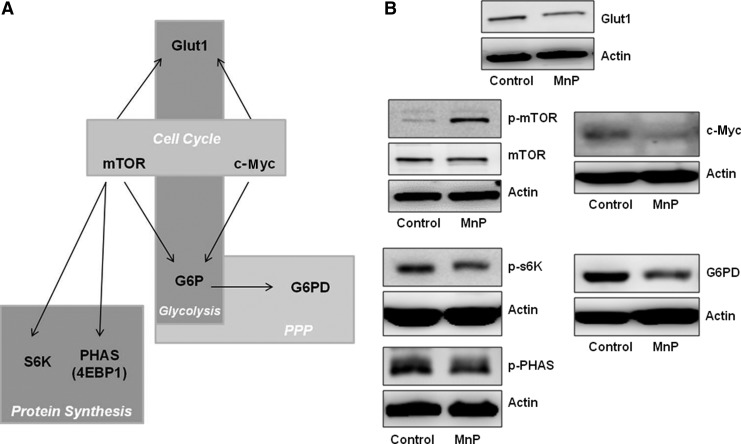FIG. 7.
Redox modulation leads to decreased aerobic glycolysis and PPP signaling. (A) Signaling important for the collaboration of glycolysis, cell cycle, protein synthesis, and PPP. (B) BDC-2.5.TCR.Tg mice were treated for 7 days i.p. with MnP or HBSS at 10 mg/kg. On day 8, splenocytes were harvested for protein lysates. Whole cell lysates were probed for Glut-1; c-Myc; phospho-mTOR and mTOR; phospho-p70s6K and phospho-PHAS; and G6PD by western blot. Actin was probed as a loading control for all panels. Data show representative blots of independent experiments from n=3–4 mice/group. G6PD, glucose-6-phosphate dehydrogenase; mTOR, mammalian target of rapamycin; PPP, pentose phosphate pathway; PHAS-1 (4E-BP1), eukaryotic initiation factor 4E-binding protein.

